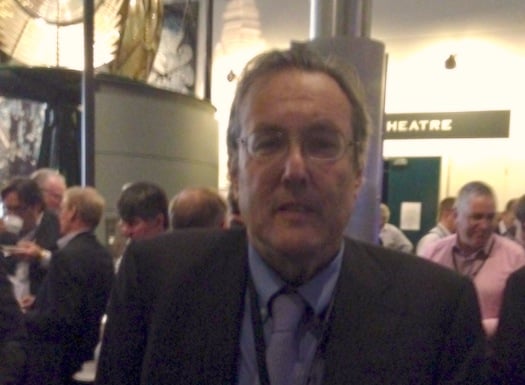Quoting the final words from the Back to the Future movie, Jeff Cole told Radcomms conference delegates that in the 20th century our society built infrastructure such as roads and wired telephone networks, but in the 21st century, such wired infrastructure is no longer needed.
Cole talked about the “wifi explosion” in the United States and the effect it is having on the “always connected society.”
“The good news is that tv ratings are increasing. We’ve always wanted to wanted to watch tv with friends. We’re still doing that, but these days they are just not always in the same room… we are connected through wireless social media,” he said.
What’s the thing that all the human species has in common? Cole explained that the answer to that question now is a mobile phone. “The poorest and the richest people on the planet have such devices and they are always connected.”
In Finland, access to the internet has now been declared a basic human right. While praising the benefits of “always connected” technology, Cole also warned about “device fatigue,” saying that, even though people want to be connected, they want to have the choice whether to use their connected device or choose to have down time.
Cole quoted one study that found 90% of American teenagers sleep with their smart phone next to them. The two reasons for this are that the smart phone has replaced the alarm clock for teenagers and, more significantly, because of the FOMO effect.
FOMO is the ‘fear of missing out.’
To enable all of our connected devices societies need radio communications spectrum, which is the subject of the conference.
Cole praised successive Australian governments for their foresight in the area of spectrum and told delegates that Australia’s NBN is “a visionary project,” saying business and entertainment are all being transformed by connected technology.
Speaking at the beginning of today’s conference, ACMA Chairman Chris Chapman said spectrum related technologies in Australia have saved businesses around $22 billion. “We will only be asking the Minister for 10% of that as a facilitation fee,” joked Chapman. “That’ll get back to the minister,” he quipped. It will now, the minister reads radioinfo.

Where we’re going we don’t need roads: Jeff Cole at Radcomms
Tags: ACMA Jeff Cole Radcomms Chris Chapman
